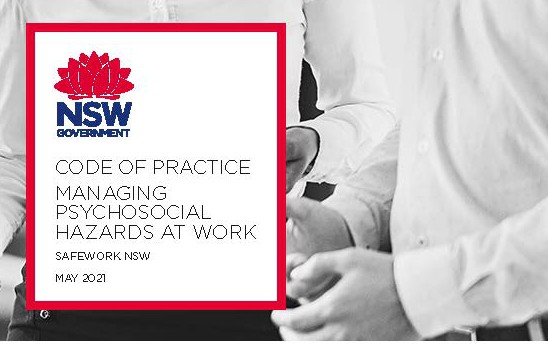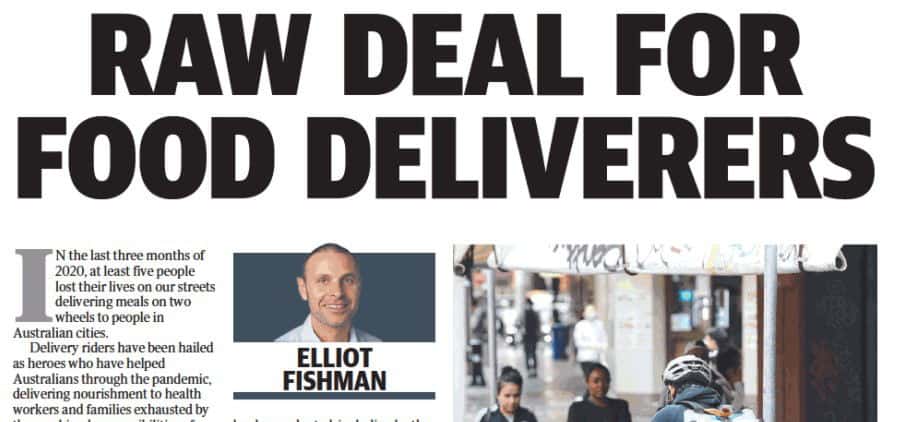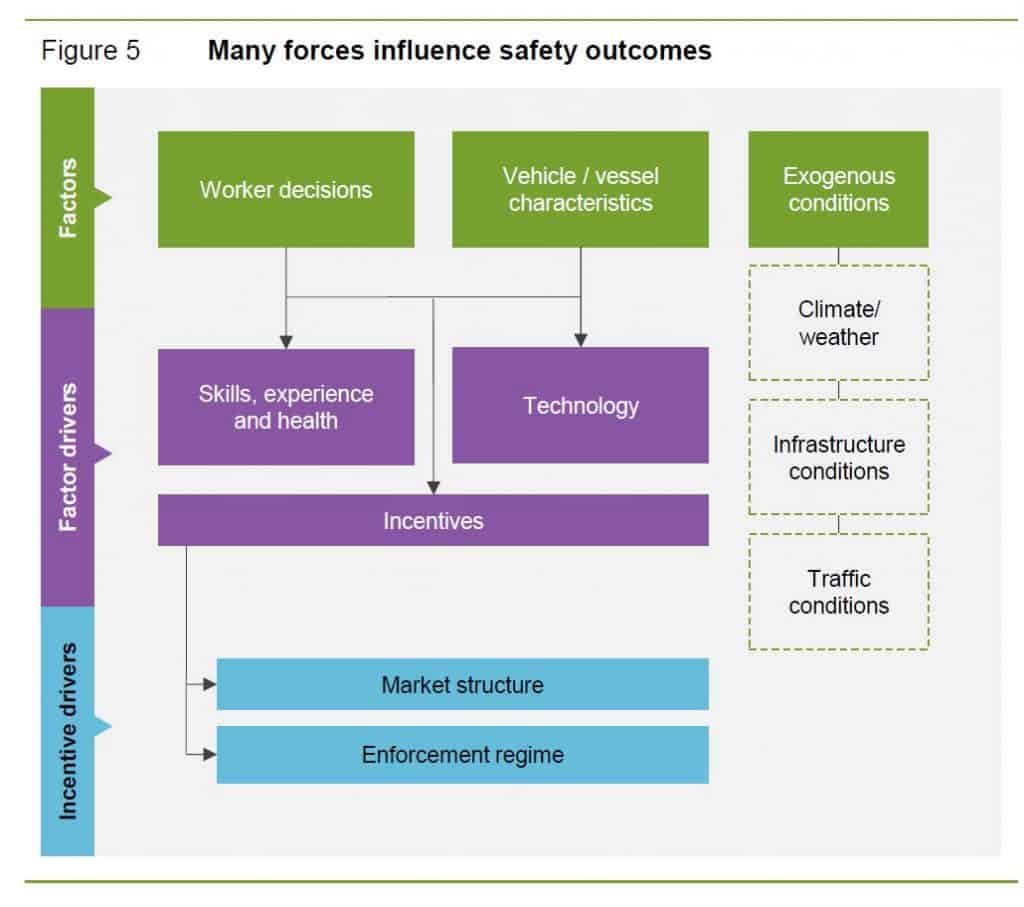The big occupational health and safety (OHS) news in Australia has been the New South Wales release of its Code of Practice for Managing Psychological Hazards at Work. This Code is not mandatory but is a very good indication of what the OHS regulators (and perhaps eventually the Courts) believe are reasonably practicable measures for employers and business owners to take. These measures are discussed in detail below.
Category: fatigue
Stepping forward a bit, maybe
Last week the Australian Council of Trade Unions (ACTU) issued a media release describing the meeting of Work Health and Safety Ministers presenting a
“… huge step forward on mental health…”
The “step” is more walking on the spot than a step forward as the obligation to address psychological hazards in the workplace has existed in Australia for decades. It has just been ignored.
However, what caught my attention was this statement:
“Up to 45 per cent of mental health issues are attributable to work…..”
Psychological harm gets new regulations and funding access
The State of Victoria had a big week on mental health, with the Labor Government allocating billions of dollars to the improvement of the mental health of its citizens. Much of the justification for the spend (and the imposition of a mental health levy on large companies) is in response to the recent Royal Commission into Mental Health Systems. Workplace health and safety was on the agenda in that Royal Commission. Hence, it is worth looking at how, or if, this recent Budget helps employers improve the psychological health of their workers in anticipation of new regulations on this hazard promised by Victoria’s Minister for Workplace Safety, Ingrid Stitt.
“safety theft” in the gig economy
An opinion piece by Dr Elliot Fishman, of the Institute for Sensible Transport published in the HeraldSun newspaper on January 3, 2021 mentions Industrial Manslaughter in relation to food delivery drivers. (The article appears to be unavailable online) The link is tenuous and seems outside of Dr Fishman’s main area of expertise, but that seems to be the nature of Industrial Manslaughter penalties, they pop up in all sorts of discussions, many unrelated to the point being made.
The point Dr Fishman seems to be making is that the delivery of food on two-wheeled vehicles is dangerous, as shown by recent deaths of several riders in Victoria and New South Wales, and he poses several questions and suggestions to improve the situation:
If staff are “going to hit the wall”, redesign the wall
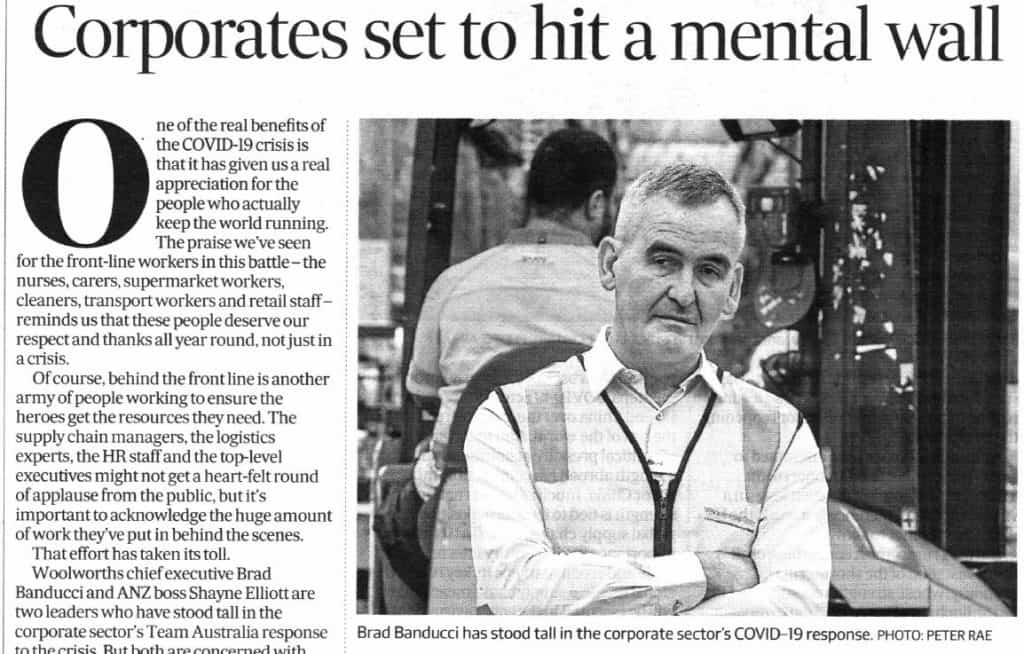
On May 11 2020, the Australian Financial Review’s back page ran an article (paywalled)about how “corporates” are becoming aware of mental health risks due to the COVID19 disruption. It is a good article but also one that reveals the dominant misunderstanding about mental health at work and how to prevent it.
Political Science (finally) comes to OHS
Improvement in occupational health and safety (OHS) standards has always been the intention of OHS laws. Parallel to this is the intention of the OHS, and allied, professions to continuously improve health and safety through the prevention of harm. However, political leadership on OHS has been scarce over the last few years, especially in the national governments of the United Kingdom, the United States and Australia. So, it is necessary to look beyond the party politics to other sources of change.
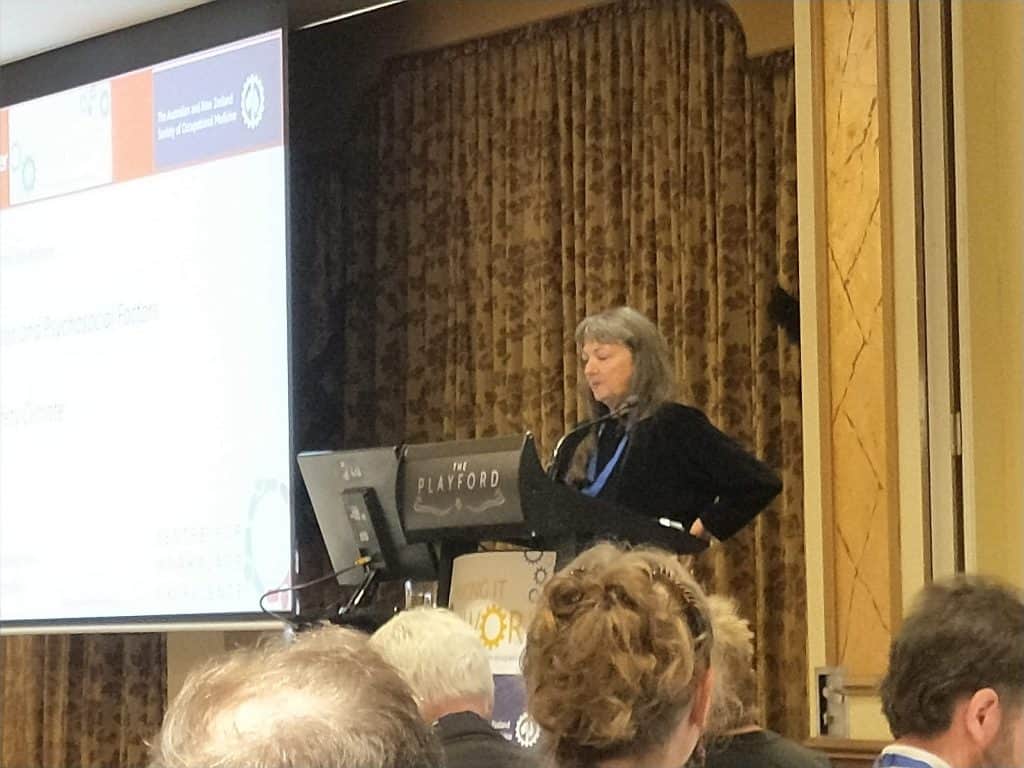
At the recent scientific meeting of the Australia and New Zealand Society of Occupational Medicine in Adelaide, prominent academic, Professor Maureen Dollard, introduced a much- needed element of political science into her presentation which was titled “Work Organisation and Psychosocial Factors”. SafetyAtWorkBlog was able to ask Dollard, and fellow presenter Professor Sally Ferguson, about this political context.
Safety remains a muddle in Australia’s trucking industry
SafetyAtWorkBlog believes the fact that commercial vehicles are also workplaces remains under-utilised in Australia. There are hints that this position is shared by others and that the analysis of occupational health and safety (OHS) in the transport sector is maturing. An Issues Paper released in May 2019 by the Productivity Commission (PC) as party of the review of the 2009 National Transport Regulatory Reform program looks at potential safety outcomes.
In each of the sectors within the reform program – heavy vehicles, rail and maritime – safety improvements, enhancements and improvements were expected. The PC accepts the multidisciplinary and multi-factorial elements of OHS:
“…. the national laws and regulators are only one influence on safety outcomes. The multiplicity of influences on safety outcomes raises challenges for measurement of the contribution of the national system to any changes in safety outcomes since the system was introduced. The Commission envisages that the direct net benefits from safety related reforms must be assessed by the use of simple methods such as benchmarking (including to other countries) and other descriptive analyses. For example, Hassall (2014) estimates the accident rate (broken down by accident severity) per 100 million kilometres.”
page 12
(Given that the PC has a separate inquiry into mental health, it will be interesting to see if this perspective is consistent across different sectors)

